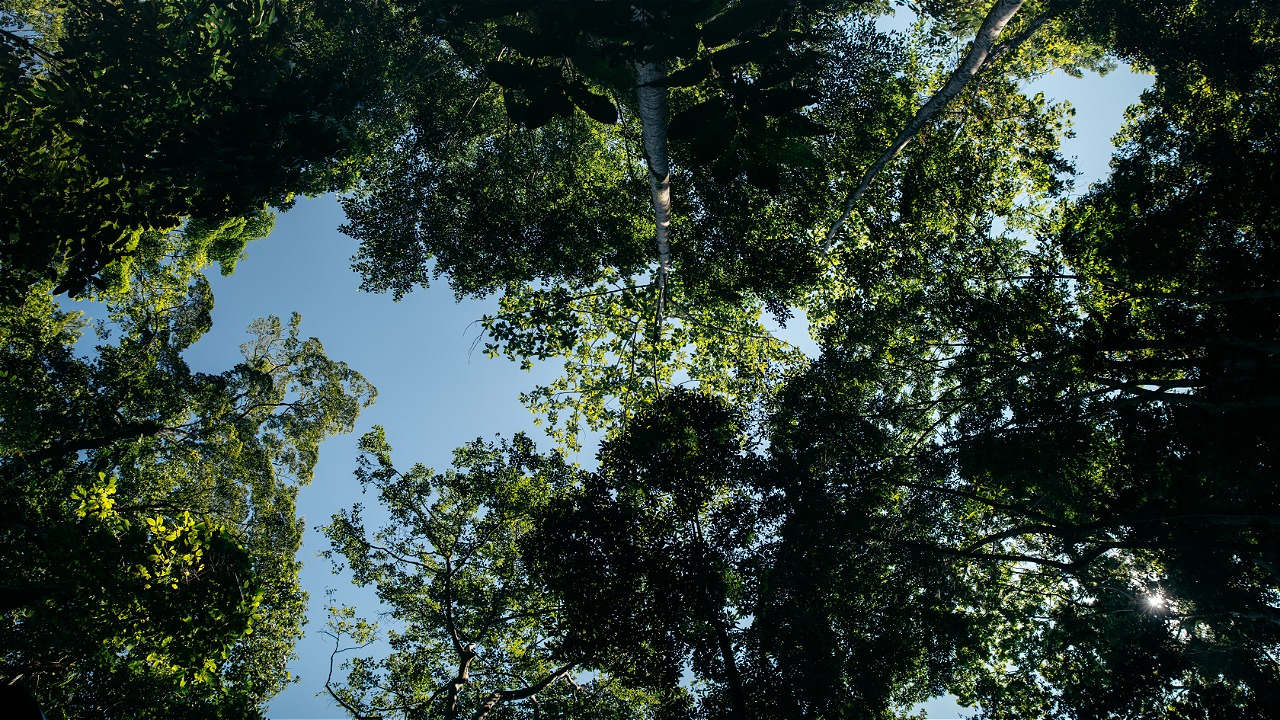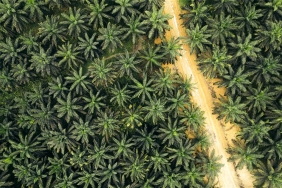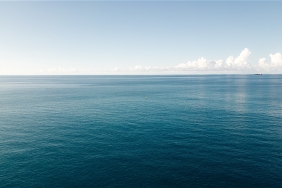WWF: CONSUMERS DETERMINE THE FUTURE OF INDONESIA'S NATURAL FORESTS
Jakarta - WWF's Living Planet Report 2012 underscores that the consumption of natural resources and the lifestyles of the world's 7 billion people now exceed the earth's ability to naturally recover and sustainably support human life. It currently takes 1½ earths to sustain human lifestyles and consumption.
In line with Indonesia's rapid economic growth, market demand for forestry products is also increasing and often has to be met quickly, so that aspects of responsible forest management are often neglected, even in some cases in violation of the law. If the consumption of forest resources is not accompanied by sustainable consumption and production patterns, the sustainability of natural forests is only a matter of time before they are destroyed.
WWF-Indonesia's Sumatra and Kalimantan Program Director, Anwar Purwoto, said, "WWF invites consumers in Indonesia to be more concerned and consider the impact of every product they consume. One way is to start choosing, buying, and using wood products and derivatives such as paper and tissue that are produced sustainably, for example using products from certified forest management such as the FSC (Forest Stewardship Council)." Anwar also added that certification labels can help consumers to recognize that the products they consume come from forests that are managed in an environmentally friendly manner and pay attention to biodiversity conservation.
According to statistics released by the Ministry of Forestry in 2011, the rate of deforestation in Indonesia accelerated to 1.2 million hectares of natural forest each year in the 2000-2010 period. Although this figure has shown a decline since 2010, the danger of deforestation still threatens from irresponsible consumption patterns. Data from the NGO coalition Eyes on the Forest in Riau shows that global paper companies operating in Riau have destroyed more than 2 million hectares of natural forests to supply their pulp mills.
Irresponsible consumption also triggers producers to push for faster production routes, including increasing the area of land that can be extracted for timber production by violating the law, for example through licensing corruption. Such violations are rampant in our forestry sector, accelerating the rate of deforestation. Data from Human Rights Watch in 2013 showed that Indonesia loses USD 2 billion annually from corrupt practices and money laundering in the forestry sector.
Head of WWF-Indonesia's Strengthening Integrity and Accountability Program Consortium, Fathi Hanif, said, "These fraudulent practices occur deep in the field and are often not exposed, so the public does not understand that the actual granting of these improper permits is the main problem of deforestation in Indonesia."
Fathi Hanif added that in a recent study conducted by the SIAP II consortium and partners in Aceh and Riau Provinces, it was found that most mining licenses located in Aceh's forest areas were not in accordance with their designation. Meanwhile, from 3 forestry corruption cases that have been decided in 2013 in Riau, it was found that the state had lost 56 billion from the misuse of power for forest utilization permits.
In order to spread knowledge about responsible wood-based products and environmentally friendly consumption patterns to urban consumers, WWF-Indonesia and partners held a public event themed "100% Responsible Consumer" at the National Museum, Jakarta, on March 1-2, 2014. This event targets participants from young creatives and urban families. Various interesting activities will be organized, including an exhibition of creative works and art using responsible products. The event involves six high schools and students of the faculty of fine arts and design from five universities in Jakarta, handicraft training from wood-based raw materials, knowledge about the origin of wood products, and sustainable forest management.
Note to Editor:
- Living Planet Report, an annual report recording the consumption footprint and capacity index of Planet Earth published annually by WWF-International, can be accessed at http://bit.ly/wwflpr2012.
- Forestry statistics for 2011 can be accessed at www.dephut.go.id.
- SIAP II (Strengthening Integrity and Accountability Program II) is run by a consortium of three institutions consisting of WWF-Indonesia, Indonesia Working Group on Forest Finance and Transparency International Indonesia, which aims to strengthen the capacity of civil society and media in monitoring forestry crimes. SIAP II is currently working in 4 provinces in Sumatra, namely Aceh, Riau, Jambi and Lampung. For more information, please visit www.hutankita.org
.
For more information, please contact:
- Dyah Ekarini, SIAP II Program Communications Coordinator, WWF-Indonesia (drini@wwf.or.id)
- Dita Ramadhani, Responsible Trade and Networking Coordinator, WWF/GFTN Indonesia (dramadhani@wwf.or.id)
>





